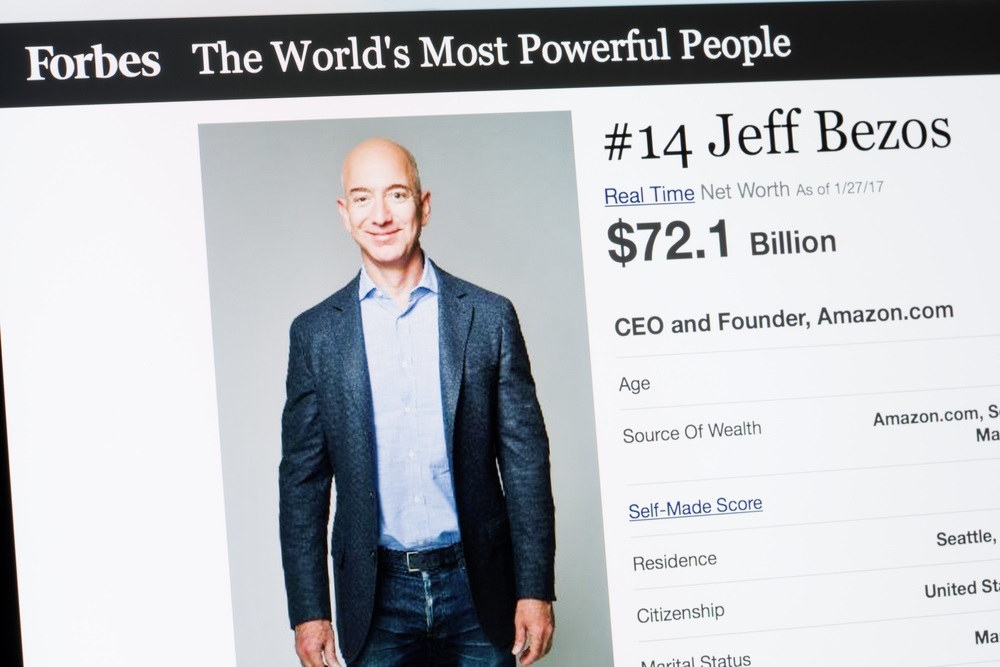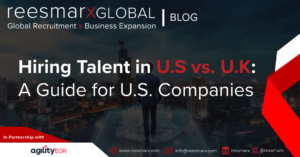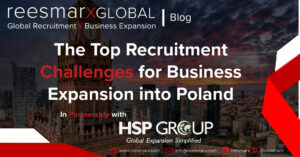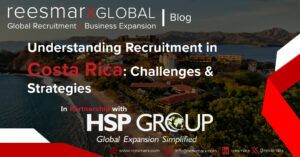From a professional development perspective, there are few things as valuable as reading and learning more about great corporate leaders. It is through their examples and methodologies, that we can gain insight into what it takes to be successful as an entrepreneur, and executive leader.
We share five of the world’s most recognized and talked about CEO’s and founders, and the personal and professional attributes that helped them earn international success.
- Jeff Bezos, Founder and CEO, Amazon
The business that revolutionized retail and ecommerce as we know it, Jeff Bezos was long recognized as an innovator, and is discussed as one of the great corporate leaders of our time. In 2017, the corporate leader of Amazon rose to be recognized as the second most wealthy business leader in the world, only surpassed by IT giant, Bill Gates.
While leading one of the worlds largest retail supply chains, the culture at Amazon has been scrutinized both by former employees and managers, and business leaders as aggressive, and uncompassionate to its workers. It is in his annual letters to Amazon shareholders, that we gain the most insight into his unique leadership style, that attributes to the great success of the organization.
“Sometimes teams have different objectives and fundamentally different views. They are not aligned. No amount of discussion, no number of meetings will resolve that deep misalignment. Without escalation, the default dispute resolution mechanism for this scenario is exhaustion. Whoever has more stamina carries the decision.”
- Zhang Ruimin, CEO, Haier Group
Zhang Ruimin was thrust into the spotlight, when his Chinese company Haier Group purchased the appliance division of General Electric Co., for $5.4 billion dollars in 2016. But it is his business model that has inspired other leaders to take a closer look at new methods of managing large corporations, as separate entrepreneurial entities. A corporation that functions effectively, as smaller enterprises within the same organization.
What is unique also about Ruimin as a CEO, is his background. He was originally a member of the Chinese Red Guard, but his capitalistic leadership fuels not only the success of Haier Group, but is also leading change within China, as it opens its doors to foreign investment and business expansion. In 2015, Ruimin won the Thinkers50 Award in London, making him the only Chinese entrepreneur to have won the award twice for management strategy.
- Elon Musk, CEO, Tesla and Space X
It is difficult to go a single week, without seeing the prolific corporate leader featured in business articles, magazines and forums. But it is not only his financial success that places Elon Musk at the top of the list of global executives, but his drive for innovation, discovery and the alignment between capitalism with social and environment good.
The drive that Elon Musk has to succeed is inspiring, because it is communicated as a deeper and more important cause, than simply profitability. But his integrity is punctuated in all his business dealings, and his confidence in the importance of his works, inspires both employees who share his vision, and capital investors. Tesla became the worlds first commercially produced green energy vehicle; a project that had little to no support, until Musk conjured a personal $50 million-dollar investment to launch the business. After borrowing an additional $400 million from the United States Government, he promptly returned the loan in a short period of time, and thanked the Government for believing in the importance of green energy.
This personal commitment also extended to taking a special advisory role within the Donald Trump administration, to further the cause for clean energy and environmental protection. When President Trump backed out of the Paris Climate Accord, and substantially reduced spending on the American Environmental Protection Agency (EPA), Musk promptly resigned his role as an advisor, as a matter of personal and professional integrity. A move that supported the reputation of the business leader, and reinforced his mission to bridge capitalism with environmental protection.
- Larry Page, Co-Founder and CEO, Google and Alphabet
Larry Page credits the unique training he received as a child, enrolled in Montessori schools, as the root of his independent nature, and ability to buck established rules, and draw on his own personal self-motivation. The exploratory and creative structure, helped build one of the worlds greatest entrepreneurial minds, who co-founded the largest and most profitable internet search engine on the planet.
What lead Page to tackle search engine design? According to his biography, he was 23 years old when he woke from a ludicrous dream, where he had attempted to ‘download the whole web’. At the time, the internet was growing quickly in domain addresses and variable content, but finding what you were looking for was equivalent to looking for a ‘needle in haystack’. And even if you could find a resource page or two, the reader had no ability to determine if the information provided was accurate, or trust worthy.
The first iteration of Google was a search engine called BackRub, that focused on ranking websites by the number of inbound links. The more links a website had, the higher the credibility and accuracy for the content could be rated. Problem solved! The search engine Google.com was registered shortly afterward, in 1997. The first “Google Doodle” on the search engine (comical logo graphic) was created in 1998, to announce to users that they were attending the “Burning Man” festival in Nevada, and not available for tech support.
Few people know that Page actually dislikes managing others. He is a proponent of “get out of the way and allow people who do the work, to solve the problem”. He is however a powerful visionary. How many businesses do you know, that would undertake mapping the entire planet? The lofty ideas that seem so impossible to others, have furthered Google’s innovative culture and success, because Larry Page doesn’t see limitations. He sees ideas, and possibilities.
- Howard Schultz, CEO, Starbucks
How do you turn a coffee shop franchise, into an international sensation? Starbucks products excel in terms of quality, but are also premium priced compared to other competitors in the space. The secret to success for Howard Schultz, who has catapulted Starbucks into substantial growth in the past five years, lies in fostering a corporate culture that appeals to both employees, and customers, unilaterally.
In a 2013 interview for Forbes Magazine, Schultz claimed that “coffee is what Starbucks makes as a product, but that’s not the business we are in.” The executive shared that he is “passionate about building a company that treats people with dignity and respect.”
Building sales success for a brand that cares about the community it serves, and one that is deeply committed to the success of its employees, is innovative. The products are good; but the international reputation of Starbucks is what continues to feed growth and success, because the organization is constantly living into that stated mission, to make lives better. Howard Schultz realized that the purchase motivation for consumers, was an emotional exchange.
Consumers are habitual when it comes to their favorite coffee franchise, but the social good that the organization continues to implement year after year, reinforces the franchise as a place you can “feel good” supporting, ethically. And that was an important brand innovation, for Schultz and Starbucks, that greatly differentiated the business from other competitors in the space.
The for-profit company, appeals as a non-profit, with a mission that drives social and economic change domestically, and globally. The Corporate Responsibility statement outlines four ways that the corporation creates positive impact, environmentally, through ethical supply chain management and resourcing, and by championing professional and economic improvement for their employees.
In addition to these core integrity principals, Starbucks local chains are active within the communities they serve, by encouraging employee involvement, and effect change. Starbucks announced that it will actively employ 25,000 American veterans by 2025, in a targeted campaign that addresses issues with employability for returning military personnel.
What we can learn is that vision, confidence and thinking well outside the accepted models of business success, have worked and continue to propel innovative executive leaders, and the businesses the run. How can you adapt some of their experience and insights, to help create impact in your own organization, and build new career opportunities in the future?






